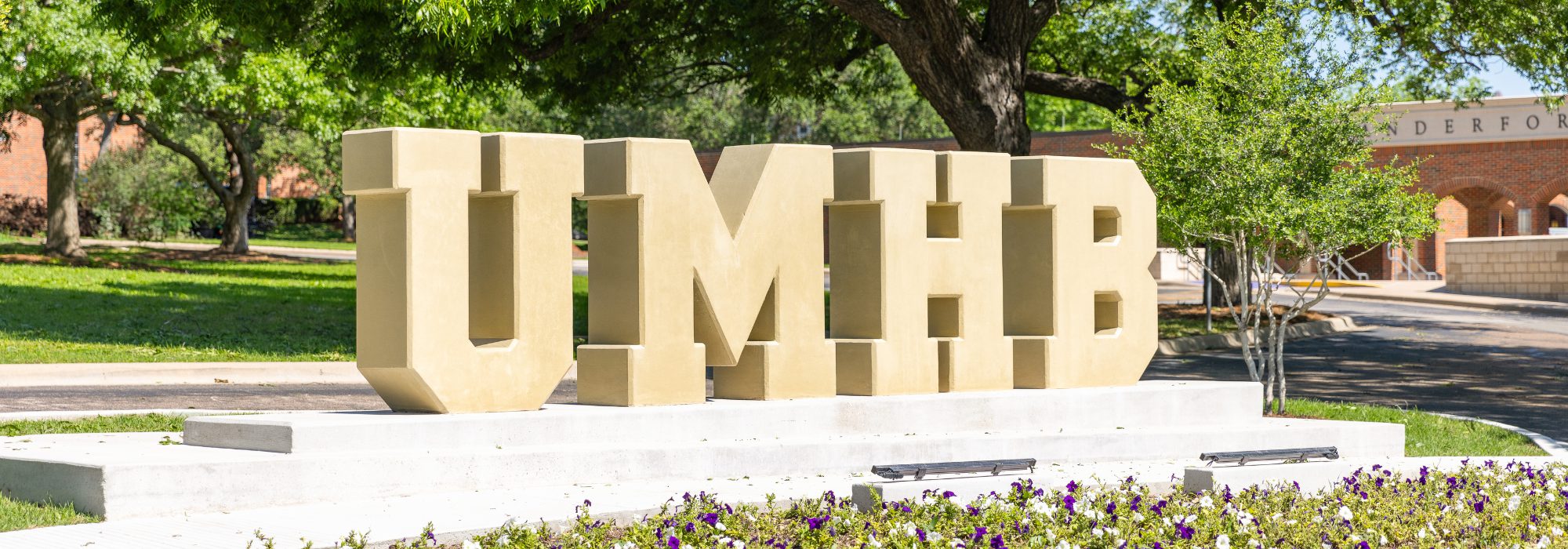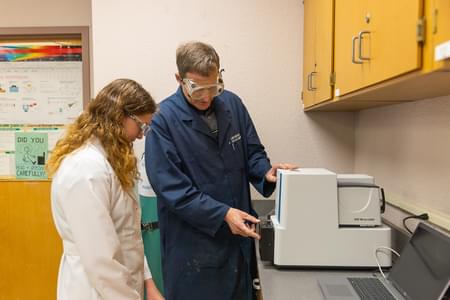BELTON, Texas—Last week, the University of Mary Hardin-Baylor (UMHB), thanks to the generosity of the Robert A. Welch Foundation of Houston, began the installation of two new state-of-the-art instruments in the Chemistry Department. The Near-Infrared and Raman Spectrophotometers, with a combined value exceeding $100,000, will significantly expand the university’s capacity for chemical research.
“I am very grateful to the Robert A. Welch Foundation for their generosity in providing these remarkable instruments which offer great potential to expand our students’ capabilities for research,” said Dr. Ruth Ann Murphy, chemistry professor.
While most chemistry majors graduate with a satisfactory knowledge of infrared and nuclear magnetic resonance spectroscopy, many do not have the opportunity to experience chemical research with Raman spectroscopy. This new, state-of-the-art Raman Spectrophotometer will allow students to measure the concentrations of microplastics in beverages and natural waters for environmental studies, to identify substances present in medications for pharmaceutical studies, and to conduct theoretical investigations.
Similarly, the Near-Infrared (Near-IR) Spectrophotometer will also benefit UMHB chemical research students. The Near-Infrared region (with wavelengths of 750 - 2500 nanometers) of the electromagnetic spectrum will now be accessible in the UMHB Chemistry Labs. Analysis of plastics like polyethylene with applications to their recycling can be done with Near-IR studies. Samples can be studied through glass and plastic as they remain in their original containers.
These new acquisitions are in addition to the research-grade, digital, Peltier temperature-controlled polarimeter acquired by the UMHB Chemistry Department earlier this spring, also with a grant from the Welch Foundation. Polarimeters measure the optical activity (chirality) of compounds.
“Considering that 19 of the 20 amino acids required for humans to synthesize proteins are chiral and can be analyzed with the polarimeter, this is extremely relevant,” explained Dr. Murphy. “Additionally, the carbohydrate intake by humans also exhibits optical activity, which this instrument can measure. Exact replicas of this polarimeter are used in the development of new pharmaceuticals.”
Hands-on experience with these and other instruments (including high-pressure liquid chromatography, ultraviolet-visible spectroscopy, Fourier transform infrared spectroscopy, calorimetry, gas chromatograph mass spectrometry, nuclear magnetic resonance, atomic absorption analysis, calorimetry, colorimetry, tensiometry, and viscometry) in the UMHB Chemistry Department will help prepare students for success as they seek employment or acceptance to graduate programs.
To learn more about UMHB’s chemistry department, visit Chemistry | Chemistry major | Chemistry degree | UMHB.




